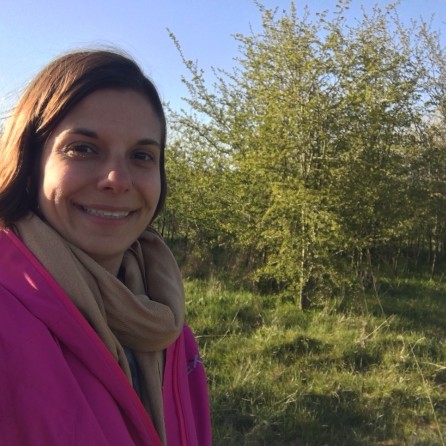
Writing has been shown to help with stress management – one of the pillars of the Overcoming MS Program. We asked ‘Living Well with MS’ podcast producer Regina Beach to share how therapeutic writing has helped her.
In 2023 a fellow Overcoming MS community member told me about a 10-week writing for wellbeing study out of the University of Birmingham at Alabama’s Arts in Medicine program, which sounded right up my street.
I’ve always been a writer. I have a journalism degree and a healthy journalling habit, but this was my first experience using expressive writing to process emotions. Each session started with a silent minute of breathing, reiterating the meeting guidelines and then a new prompt was introduced, and I wrote for 12 minutes. After re-reading what I wrote I had 7 minutes to write a response to what I wrote and the opportunity to share my writing if I wanted to.
The process is simple yet profound and the research continues to grow about the benefits of expressive writing to help people come to terms with their condition, their emotions, and even past traumatic experiences.
Writing for wellbeing, also known as expressive writing or therapeutic writing, is writing focused on processing thoughts and feelings. It’s not worried about structure or grammar, and it’s not written for an outside audience. Think journalling or life writing to prompts about your lived experience.
Many hospitals now offer art, music, crafts and mindfulness activities for patients as research suggests that mindset is vital to healing with patients reporting less stress, better mood, and a decreased perception of pain. The University of Alabama Arts in Medicine program brings visual and performing arts to UAB Medicine unity and is sponsoring its first Disability Arts Festival.
I am so excited to have been able to help edit and design an anthology of poems and essays also titled From Where I Sit alongside Birmingham Poet Lauret Salaam Green which will debut at the festival. I’ve been meeting virtually with graduates of the 10-week study to continue to write and share our work. We’re turning our writing into a script for a stage show to be performed at the festival.
I’ll be traveling to Birmingham, Alabama at the end of May to meet 15 other writers and performers living with spinal cord injuries, transverse myelitis, and multiple sclerosis. We’ll rehearse the show inspired by our writing directed by Suzanne Costello and with original songs by Anita Hollander. From Where I Sit will debut at the end of the Disability Arts Festival, which also features Victoria Dugger, Alie B. Gorrie, Ali Stroker and other disabled artists and activists across a range of disciplines.
I have not acted since I was at university and I certainly haven’t acted since my MS diagnosis. My physical symptoms mean I often avoid attention and the unpredictability of MS coupled with the physical demands of rehearsing and performing have kept me firmly in the audience.
I’ll be staying at the Paralympic training facility and rehearsing a few hours a day with plenty of breaks and a cast and director who really get what’s it’s like to live with a chronic condition. The opportunity to participate in an accessible production that will shine light on life with spinal cord injury or illness is so exciting.
As Regina’s story shows, writing can be much more than a creative outlet – it can be a tool for healing, reflection and growth. For people living with MS, writing offers a safe space to explore difficult emotions, reduce stress and connect with a sense of self beyond symptoms or diagnosis.
You don’t need formal training or special equipment to begin. Just a pen, paper, or even your phone’s notes app.
Here are a few ways to try writing for wellbeing:
Journalling: Set aside 10 minutes a day to write whatever comes to mind. Try not to edit or overthink – this is just for you.
Prompt-based writing: Use a prompt like “What does living well mean to me today?” or “A moment I felt proud of myself…” and write freely for 5–15 minutes.
Letters you don’t send: Writing letters to your MS, your past or future self, or someone who supported you can be incredibly freeing – even if no one else ever sees them.
Mindful writing: After meditating or simply sitting quietly, jot down what surfaced. It can help clarify thoughts or process emotions gently.
You might discover, like Regina did, that your words become more than just a private comfort – they could be something you one day share, perform, or even shape into a community project.
The most important thing? Just begin. Your story matters, whether it stays on the page or finds its way into the world.
Disability Arts Festival events featuring Regina:
21st April 12 pm Alabama (CST) / 6 pm UK free Stories from the Stage talk on zoom
10th and 11th May From Where I Sit will be livestreamed – you can apply for a free ticket using the link
Effects of a coach-guided video-conferencing expressive writing program on facilitating grief resolution in adults with SCI – research paper
Lapidus International – resources to support writing for wellbeing.